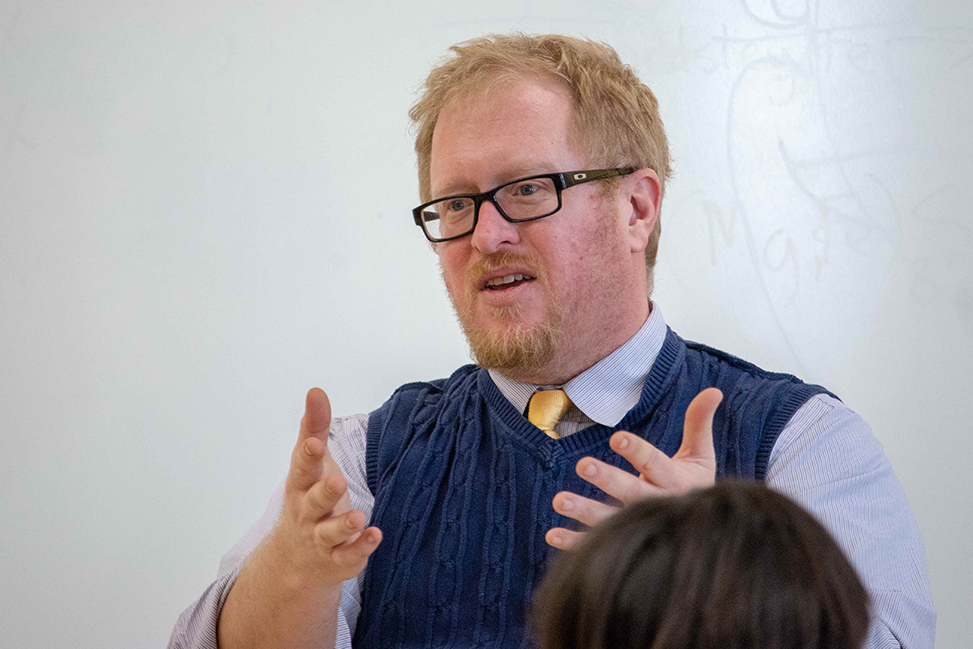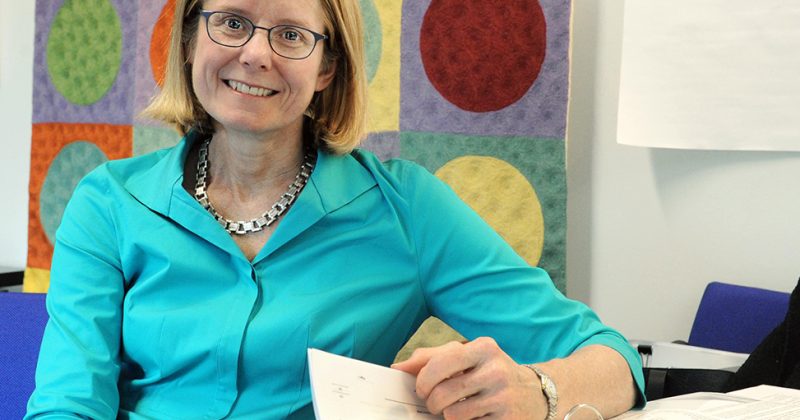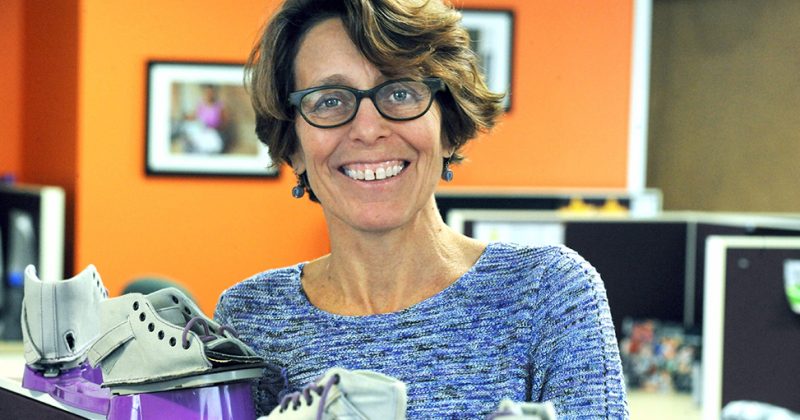
“I teach people that it’s important to think about all sides of a question … and then how to move beyond the intractable fights that we see,” says Christian Lundberg, who has advised politicians on matters of rhetoric. (photo by Kristen Chavez)
Christian Lundberg teaches students the valuable skills of how to think critically, communicate effectively and negotiate conflict.
During a time when public dialogue is increasingly fractured, the work of Christian Lundberg is more critical than ever. Lundberg, associate professor of communication and rhetoric, said he is passionate about strengthening the ability of his students to participate effectively in democracy.
“I think our political and public cultures are broken,” said Lundberg. “People have a hard time listening to each other, so we are challenged in thinking about how to move forward when people have radically different viewpoints.” He believes that students on the campus of a public university like UNC need to be able to have robust conversations about controversial issues.
To further his commitment to help students participate in productive dialogue, Lundberg teaches courses on debate and public speaking and leads the popular first-year seminar, “Think, Speak, Argue.” During the “Think” part of the seminar, Lundberg teaches students informal logic and argument.
“I want students to figure out how they can read and think about arguments and ideas in a manner that demands evidence and highlights rigor,” he said. “We read texts by scholars of argument to learn what makes evidence credible. Our contemporary public culture has lost regard for the truthfulness of claims.”
During the “Speak” section, students participate in a simulation during which they debate and represent a position that may not reflect their beliefs. “The goal is to take insights from the tradition of rhetoric and help people communicate what matters to them,” Lundberg said. “You may have your claims lined up logically, but it’s also important to learn how to make a good argument that is persuasive to your audience.” Lundberg added that this skill is crucial “not just for training folks for their own good but for their success in the workplace and our broader democracy.”
In the last section of the seminar, students weave together what they have learned by participating in an extensive series of debates about a public policy issue.
“I teach people that it’s important to think about all sides of a question, to listen to and sympathize with arguments on opposing sides, and then learn how to move beyond the intractable fights that we see,” he said.
In addition to sharing those lessons with Carolina undergraduates, Lundberg has taught members of the broader community, including elected and appointed officials in North Carolina, through workshops at UNC’s School of Government and visiting international students at the School of Media and Journalism.
“As we have become more fragmented in terms of where we live and the media we consume, the divisions that folks feel have gotten more and more intense,” he said. “I’m really committed to the idea of teaching listening and taking the perspective of different sides.”
Lundberg said that he regularly hears from students about how significant they find his classes.
“Students realize that they were not intent on evaluating the evidence behind a lot of their beliefs,” Lundberg said. “They see that there is almost always a reasonable story of what the different sides in a dispute believe, and they start to come to a sense that it’s possible to work through them.”
“Of all the skills that employers say they want from people coming out of college, the biggest gap in the American workforce is not a lack of STEM skills,” he added. “It’s that people come to the workforce and are not able to communicate effectively, work in teams or negotiate conflict. I like helping people find their voice and use it.”
By Michele Lynn
Published in the Spring 2019 issue | Tar Heels Up Close




